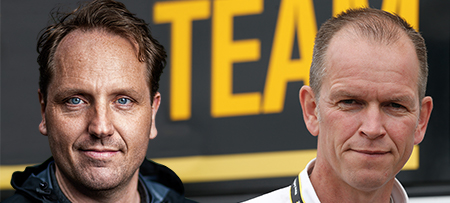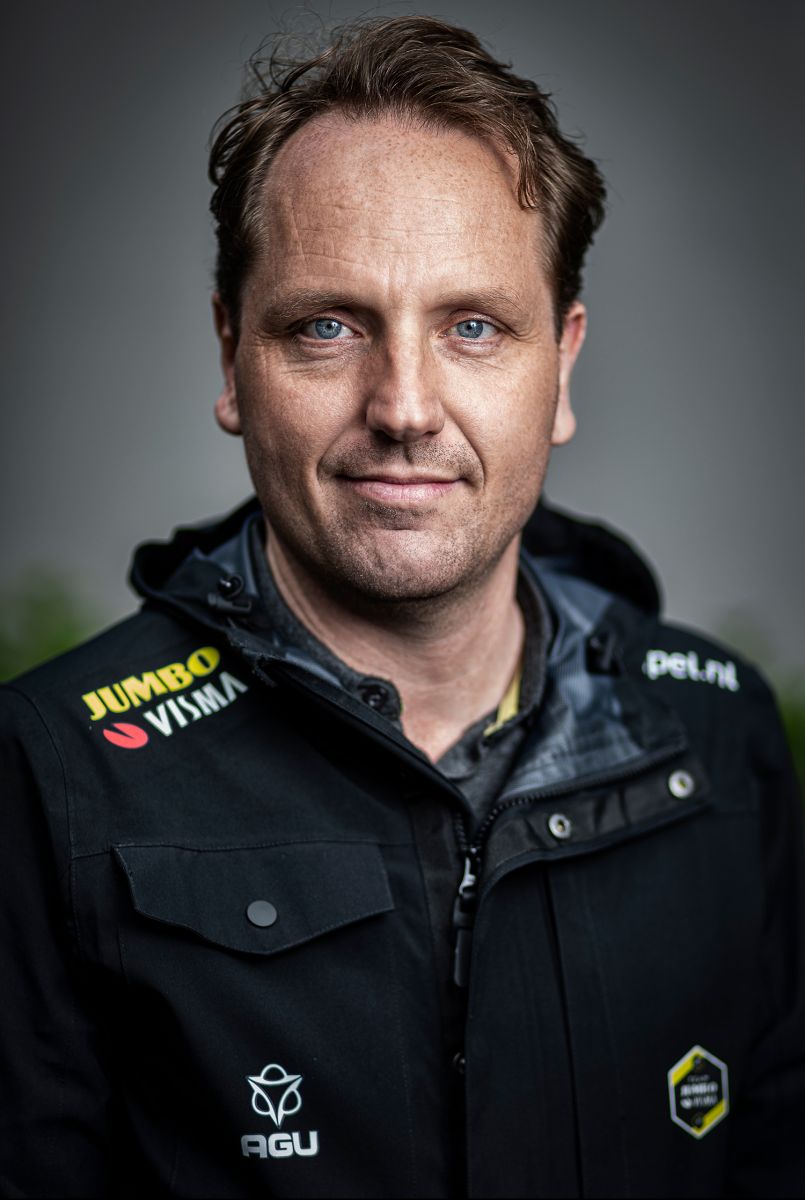"Merijn was a modern coach, so promised the stories I heard and read about him. Progressiveness was something we desperately needed. At the time, the coaching of cyclists lagged far behind that of other sports disciplines. In fact, in cycling there was almost no coaching. In other teams, that was starting to change. It was necessary that we also approached our training program in a more systematic and scientific way. And that we had a coach who could do that. In the first conversations with Merijn, it quickly became clear that we shared the same vision. He also had a people-oriented approach to sport, whereby the athlete should be central, not the sponsor.
He joined our team less than a month before, when Rabobank ended its sponsorship. For our team, where there had always been enough resources and where that was infinite for all team members, it was suddenly no longer certain whether we would still exist the following year. There was uncertainty and dissatisfaction, which led to some wrangling. In addition, we had the challenge of finding new sponsors, at a time when we did not exactly have a good reputation. Plenty of dilemmas, for two managers who had only recently come on board. We immediately learned what we could gain from each other. Merijn was clearly a go-getter, he could also have opted for security.
In a sparring partner, I look for someone with whom I can sketch out different scenarios. What is the consequence if that happens or if we make that choice? It is important that such a person can think out-of-the-box, so that you sometimes break through the fixed circle and so that they can surprise you with other insights. It must be someone who understands the subject. This means that for some situations you need a different sparring partner than for others. For private situations I call in a coach, when it comes to the team I exchange thoughts with Merijn. And conversations don't always have to be serious. It's great if you have the same sense of humor, so you can have fun. I consider most sparring partners as friends.
Trust is the most important thing. There must be a safe environment in which you can tell each other the truth. So that you can also enter into difficult conversations and, if necessary, identify painful areas. I expect Merijn to keep me focused on the human aspect; I help him to be more businesslike. In 2015, the division of roles was the same. We were on the eve of a major reorganization and I invited Merijn to my home. We had both done our homework, which partly consisted of collecting companies of which we thought: those have a strong story. We zoomed in on the strategies of Nike, Ikea and PSV, which we also saw as good examples. That afternoon we thought about how we could make our organization strong enough to win over sponsors again. What does our team - at that time still Blanco Pro Cycling - stand for and where do we want to go?
I make plans quickly. I have an idea and in my head I have already gone through all the steps necessary for that. I know how important it is to take your people with you. But Merijn is much stronger in doing that. At home I gave direction to the goal; I outlined the structure for a strategy, which would be guided by core values. Getting all the team members to co-write that and then sign it was Merijn's idea."

